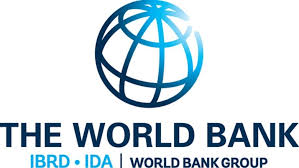The World Bank on Thursday said that poverty in Nigeria will increase by 3.6 percentage points over the next five years through 2027.
The bank made the disclosure in its Africa’s Pulse report released at the ongoing Spring Meetings of the International Monetary Fund (IMF) and the World Bank in Washington DC, United States.
The report said non-resource-rich countries are expected to continue reducing poverty faster than resource-rich countries, adding that due to higher prices of agricultural commodities, non-resource-rich countries will see higher growth overall, despite fiscal pressures.
“Conversely, resource-rich countries are not expected to grow at the same rate given decelerating oil prices. As a result, resource-rich countries are expected to see less progress in terms of poverty reduction (figure 1.10).
“Importantly, poverty in resource-rich, fragile countries (which include large countries like the Democratic Republic of Congo and Nigeria) is expected to increase by 3.6 percentage points over 2022–27, being the only group in the region with increasing poverty rates.”
In separate note contained in the report, the World Bank cautioned that its finding calls for “urgent improvement in service delivery in countries with rapidly expanding populations, such as the Democratic Republic of Congo and Nigeria.”
The report said the development follows a well-established pattern, whereby resource wealth combined with fragility or conflict is associated with the highest poverty rates—an average poverty rate of 46 per cent in 2024, 13 percentage points above non-fragile, resource-rich countries. Meanwhile, non-resource-rich, non-fragile countries saw the biggest gains in poverty reduction since 2000 and fully closed the gap in poverty with other non-resource-rich countries by 2010.
